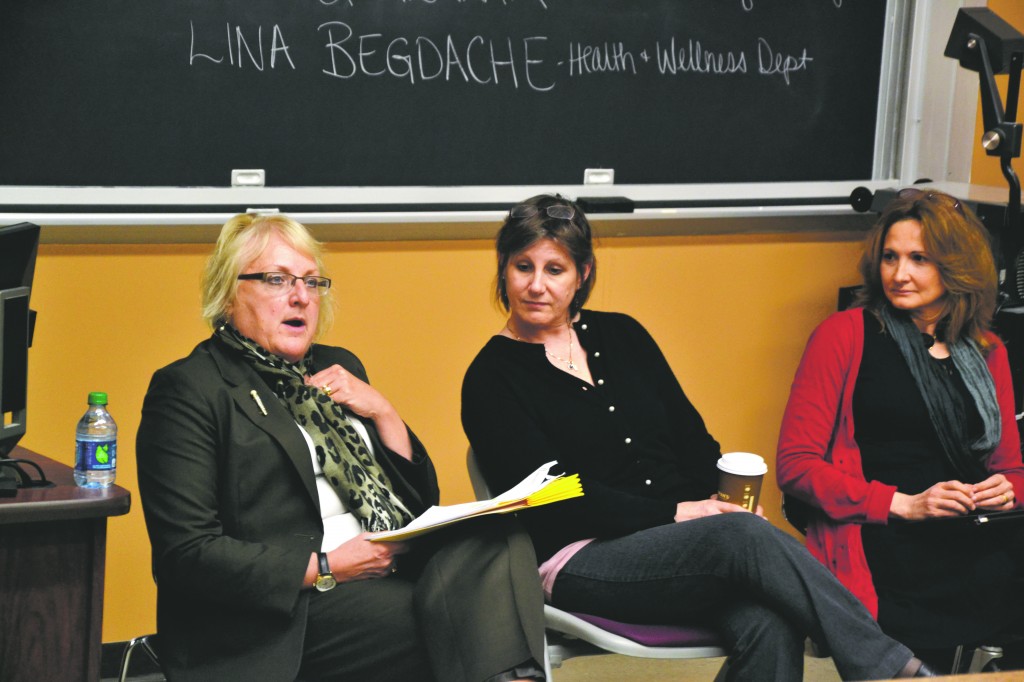
Professors and health professionals gave students the blunt truth about the risks and rewards of legalizing medical marijuana in New York state.
Wednesday evening’s event, an installation of Center for Civic Engagement’s (CCE) “Community Issues Forums,” was held in Lecture Hall 7 and featured speakers from the Decker School of Nursing and the Broome County Health Department. They answered questions from moderator Allison Alden, director of the CCE, and students ranging from what it will take to legalize marijuana, to how it would be regulated and the possible consequences of legalization.
Speakers discussed the Compassionate Care Act that, if passed, would legalize medical marijuana in New York. According to Claudia Edwards, public health director of the Broome County Health Department, the law would make marijuana highly regulated, and only accessible to those licensed to dispense it.
Judy Quaranta, Binghamton University professor of medical health, said that although scientists are able to extract the ingredients from marijuana that have medicinal value and leave out the THC, which is the psychoactive ingredient, there is not enough research yet to legalize it.
“We need research centers to look at this,” Quaranta said. “We base our knowledge on what people have told us, but we need controlled studies.”
A concern with the legalization of marijuana is the effects it may have on the developing brain. Lina Begdache, a professor in the Decker School of Nursing, explained how marijuana increases dopamine levels in our brains. This can have negative affects on how the brain develops in young men and women below the age of 25.
“As if you’re overwhelming your brain with high voltage, your brain is not made to accept or tolerate high voltage,” Begdache said. “So it has to rewire itself in a way to accept that high voltage by changing how brain cells work.”
According to Alden, the idea behind Wednesday’s event and other CCE forums, which have discussed topics ranging from genetically modified organisms to the war in Afghanistan, was to inform students about both sides of an issue so they can develop an informed opinion on the topic.
“I think no matter which way in an argument you go,” Alden said, “you just have to have the facts and the evidence to make your decision, it just shouldn’t be a gut reaction.”
Kaitlin Voellinger, a student-faculty scholar for the CCE and a senior in the individualized major program studying Women, Society and Health Policy, helped organize Wednesday’s forum.
“We hope that students are educated enough after this event to take action in whatever ways they may see fit,” Voellinger said. “Whether that be signing petitions, writing letters to elected officials, or simply learning more about the topic.”
Alden said that the goal of these forums was to bring people who have different perspectives together, and have an open discussion.
“The purpose of the Center for Civic Engagement is to prepare students to be active, informed citizens,” Alden said. “In order to do that they need to understand what are the greatest challenges that we’re faced with in our community.”


